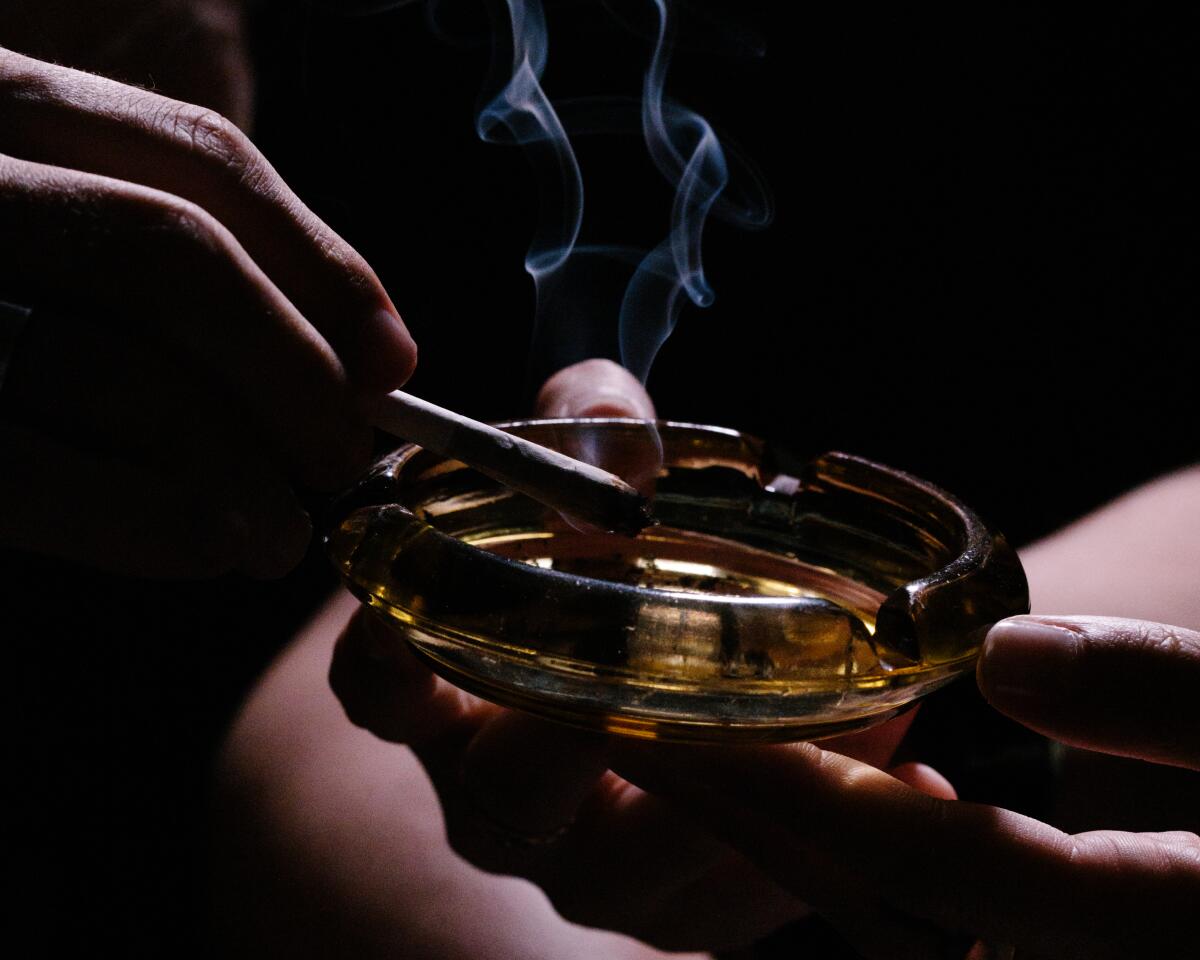Blowing smoke? Lawsuit accuses popular cannabis brand of overstating THC content in its joints

- Share via
The makers of Jeeter brand prerolled joints market some of their popular products as having enough THC — the compound that makes cannabis users high — to “get you to Mars quicker than Elon Musk.”
But according to a lawsuit filed last week in Los Angeles County Superior Court, the joints will keep smokers closer to Earth.
“The declarations of THC content on [DreamFields Brands Inc. and Med for America Inc.’s] labels … are false,” the plaintiffs’ attorneys wrote in the complaint. “Defendants are systematically overstating the THC content to deceive consumers into thinking that the effects of their prerolls are more potent than they truly are.”
The makers of Jeeter products have a “financial incentive” to misrepresent the THC contents in their marijuana, the lawsuit alleges, because consumers are willing to pay a premium for potency: the higher the price, the higher you get, in theory.
The suit, filed by Santa Monica-based law firm Dovel & Luner on behalf of two California residents who bought the allegedly mislabeled products, seeks unspecified damages and restitution. Attorneys are also seeking class-action status for the lawsuit.
The revelations mirror a Times investigation on corruption in marijuana licensing. Citing The Times’ story, a California lawmaker wants a statewide task force to investigate.
Jeeter joints were the bestselling prerolls in the country last year, according to Forbes, with millions of joints sold per year.
Jeeter called the lawsuit “baseless and ridiculous.”
“Let us get straight to the point. The false allegations regarding us misrepresenting our THC levels are wrong,” the company said in an emailed statement. “These untrue allegations are a sad way to discredit our brand & business practices for sensational news and extortionary financial gain.”
The company challenged “any person and institution to demonstrate where we have been out of compliance in representing our THC content.”
The brand said it looks “forward to the truth coming to light.”
The lawsuit hinges on a California Department of Cannabis Control regulation requiring that the listed THC content on product packaging be within a 10% margin of error.
We’ve traveled around Los Angeles to find the scariest places to visit when you’re high, whether for Halloween or a day of exploring the city.
“As an example, if the THC content is expressed as a percentage and is listed as 30%, the actual THC of the product must be between 27-30%,” the lawsuit states.
The plaintiffs’ attorneys pointed to tests of Jeeter products performed by Weed Week and published in a September article that showed the THC content in several products was substantially lower than declared on the package.
Marijuana companies are required by the state to test their products for THC content as well as for toxins and other impurities. The results of those tests are put into a certificate of analysis that must be sent to state regulators.
Weed Week tested multiple products in the Jeeter line, including Baby Jete Fire OG Diamond Infused joints, which were listed as having 46% THC by weight. The product’s certificate of analysis also showed a THC content of 46%.
Testing results reportedly showed that the actual content was between 23% and 27%, an “implied inflation” of up to 100%, according to Weed Week.
Commercial cannabis resulted in corruption and questionable conduct that has rocked local governments across California, a Times investigation found.
However, the publication noted that its experiment was “imperfect,” saying its testing did not account for how long products had been on store shelves, possible exposure to extreme temperatures and other variables.
“The test suggests potency inflation is widespread in California,” Weed Week wrote. “However, the results are not sufficient to apply to any individual brand, company, product or testing lab.”
The story also notes that Jeeter products underwent two rounds of testing, with the second involving a larger sample size and reimbursement from Jeeter for the cost of the products. The second round showed inflations of between 28% and 42%.
The lab that performed Jeeter’s original testing for the products’ certificates of analysis stood by its results, according to Weed Week.
More to Read
Sign up for Essential California
The most important California stories and recommendations in your inbox every morning.
You may occasionally receive promotional content from the Los Angeles Times.














